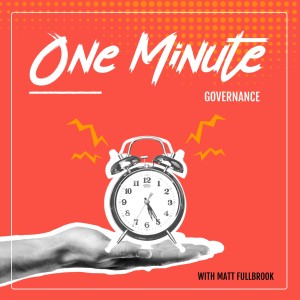
- Podcast Features
-
Monetization
-
Ads Marketplace
Join Ads Marketplace to earn through podcast sponsorships.
-
PodAds
Manage your ads with dynamic ad insertion capability.
-
Apple Podcasts Subscriptions Integration
Monetize with Apple Podcasts Subscriptions via Podbean.
-
Live Streaming
Earn rewards and recurring income from Fan Club membership.
-
Ads Marketplace
- Podbean App
-
Help and Support
-
Help Center
Get the answers and support you need.
-
Podbean Academy
Resources and guides to launch, grow, and monetize podcast.
-
Podbean Blog
Stay updated with the latest podcasting tips and trends.
-
What’s New
Check out our newest and recently released features!
-
Podcasting Smarter
Podcast interviews, best practices, and helpful tips.
-
Help Center
-
Popular Topics
-
How to Start a Podcast
The step-by-step guide to start your own podcast.
-
How to Start a Live Podcast
Create the best live podcast and engage your audience.
-
How to Monetize a Podcast
Tips on making the decision to monetize your podcast.
-
How to Promote Your Podcast
The best ways to get more eyes and ears on your podcast.
-
Podcast Advertising 101
Everything you need to know about podcast advertising.
-
Mobile Podcast Recording Guide
The ultimate guide to recording a podcast on your phone.
-
How to Use Group Recording
Steps to set up and use group recording in the Podbean app.
-
How to Start a Podcast
-
Podcasting
- Podcast Features
-
Monetization
-
Ads Marketplace
Join Ads Marketplace to earn through podcast sponsorships.
-
PodAds
Manage your ads with dynamic ad insertion capability.
-
Apple Podcasts Subscriptions Integration
Monetize with Apple Podcasts Subscriptions via Podbean.
-
Live Streaming
Earn rewards and recurring income from Fan Club membership.
-
Ads Marketplace
- Podbean App
- Advertisers
- Enterprise
- Pricing
-
Resources
-
Help and Support
-
Help Center
Get the answers and support you need.
-
Podbean Academy
Resources and guides to launch, grow, and monetize podcast.
-
Podbean Blog
Stay updated with the latest podcasting tips and trends.
-
What’s New
Check out our newest and recently released features!
-
Podcasting Smarter
Podcast interviews, best practices, and helpful tips.
-
Help Center
-
Popular Topics
-
How to Start a Podcast
The step-by-step guide to start your own podcast.
-
How to Start a Live Podcast
Create the best live podcast and engage your audience.
-
How to Monetize a Podcast
Tips on making the decision to monetize your podcast.
-
How to Promote Your Podcast
The best ways to get more eyes and ears on your podcast.
-
Podcast Advertising 101
Everything you need to know about podcast advertising.
-
Mobile Podcast Recording Guide
The ultimate guide to recording a podcast on your phone.
-
How to Use Group Recording
Steps to set up and use group recording in the Podbean app.
-
How to Start a Podcast
-
Help and Support
- Discover

180. A structure which has no relation to reality (Condition #28: corporate model)
If you’re anything like me, you’re kinda inspired by the idea of good governance as being intentional about all these conditions we’re talking about, but you also find yourself mostly doing the same stuff as always. Or at least you find it hard to break the gravity of your habits and routines. In a lot of boardrooms, one of those habits is to fall back on the excuse of your corporate model as a reason not to try new things. “We’re a huge listed company, it’s just not proper for us to experiment in the boardroom. Or, “we’re a not-for-profit organization, we can’t ask our volunteer directors to try new things or spend their time in new ways.” Or, “we tried something like this before and our regulator didn’t like it, so let’s not try it again even if we think it will make our board way more effective. Or whatever. And it’s true: your corporate model *is* a condition that affects the way you make decisions. It’s also true that every one of those excuses I just gave is both relevant and totally fair enough. BUT, I want to try to convince you that all you need to do here is take those excuses, change the wording a bit, and then suddenly your corporate model becomes a point of curiosity instead of an excuse or constraint. Like this: “We’re a huge listed company, how could our shareholders benefit from a bit more experimentation in the boardroom?” or “We’re a not-for-profit organization. How could we cultivate better conditions for our volunteer directors to thrive despite time and resource scarcity?” Or “We’re really excited to try new things. What would it take for our regulator to be supportive of the stuff we want to try in our boardroom?” Just making excuses and leaving it at that is the opposite of being intentional.
More Episodes
 2021-01-14
2021-01-14
 834
834
 2021-01-11
2021-01-11
 814
814
 2021-01-07
2021-01-07
 872
872
 2021-01-04
2021-01-04
 898
898
 2020-12-31
2020-12-31
 930
930
 2020-12-28
2020-12-28
 1.1k
1.1k
 2020-12-24
2020-12-24
 1.1k
1.1k
 2020-12-21
2020-12-21
 1.1k
1.1k
 2020-12-17
2020-12-17
 993
993
 2020-12-14
2020-12-14
 1.1k
1.1k
 2020-12-10
2020-12-10
 1.1k
1.1k
 2020-12-07
2020-12-07
 1.2k
1.2k
 2020-12-03
2020-12-03
 1.2k
1.2k
 2020-12-03
2020-12-03
 1.1k
1.1k
 2020-11-26
2020-11-26
 1.2k
1.2k
 2020-11-23
2020-11-23
 1.2k
1.2k
 2020-11-19
2020-11-19
 1.2k
1.2k
 2020-11-16
2020-11-16
 1.3k
1.3k
 2020-11-12
2020-11-12
 1.2k
1.2k
 2020-11-09
2020-11-09
 1.3k
1.3k
Create your
podcast in
minutes
- Full-featured podcast site
- Unlimited storage and bandwidth
- Comprehensive podcast stats
- Distribute to Apple Podcasts, Spotify, and more
- Make money with your podcast
It is Free
- Privacy Policy
- Cookie Policy
- Terms of Use
- Consent Preferences
- Copyright © 2015-2025 Podbean.com



